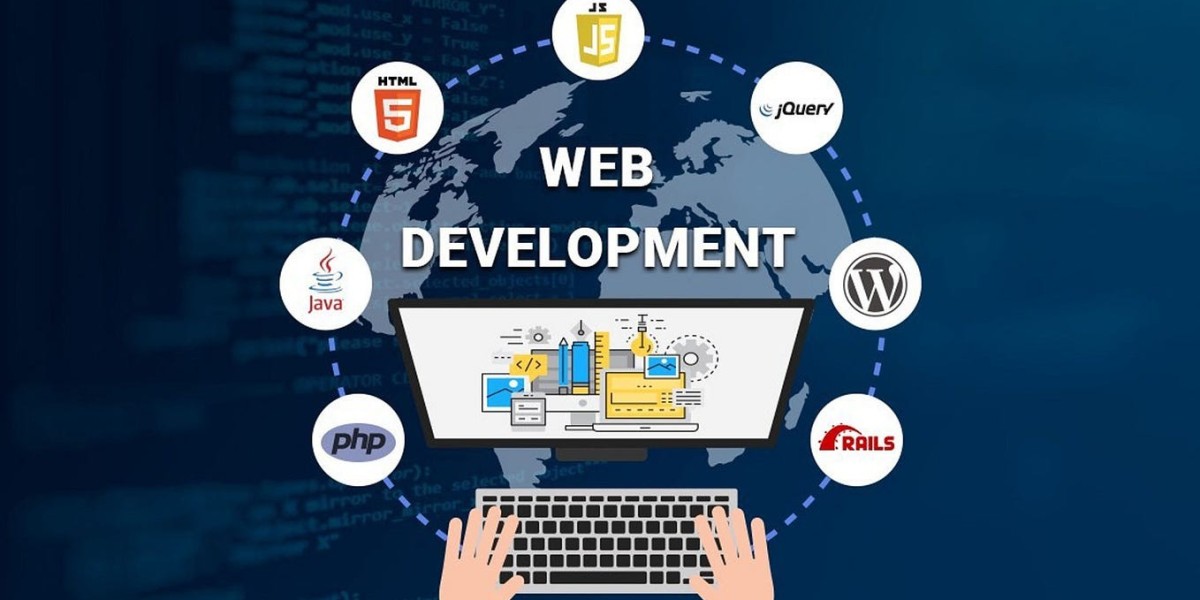Introduction
In today’s fast-paced digital world, Web Development plays a vital role in shaping our online experiences. Every website you visit—whether it’s an e-commerce store, a social media platform, or a personal blog—is the result of careful planning, design, and coding.
Web development is not just about writing code; it’s about creating interactive, user-friendly, and visually appealing digital spaces that connect people, businesses, and ideas worldwide.
What is Web Development?
Web development is the process of building, creating, and maintaining websites. It involves everything from designing the website’s appearance to managing its performance, speed, and functionality.
It can be divided into three main categories:
Front-End Development – What users see and interact with on the website (HTML, CSS, JavaScript).
Back-End Development – Server-side operations, databases, and application logic (PHP, Python, Node.js).
Full-Stack Development – A combination of both front-end and back-end skills.
Why is Web Development Important?
First Impressions Matter – Your website is often the first thing customers see about your business.
Online Presence – In the digital era, having a website is essential for credibility.
User Experience – A well-developed website is easy to navigate, loads fast, and keeps visitors engaged.
Business Growth – Websites help attract leads, customers, and sales 24/7.
Key Technologies in Web Development
Front-End Technologies
HTML (HyperText Markup Language) – The structure of a webpage.
CSS (Cascading Style Sheets) – The design and styling of the website.
JavaScript – Adds interactivity and dynamic behavior.
Frameworks like React, Angular, and Vue.js to speed up development.
Back-End Technologies
Server-Side Languages – PHP, Python, Ruby, Java, Node.js.
Databases – MySQL, MongoDB, PostgreSQL.
APIs – To connect different services and applications.
Full-Stack Tools
MEAN/MERN Stack – MongoDB, Express.js, Angular/React, Node.js.
LAMP Stack – Linux, Apache, MySQL, PHP.
The Web Development Process
Planning – Understanding goals, target audience, and required features.
Designing – Creating a visual blueprint of the website (UI/UX design).
Development – Writing the actual code for front-end and back-end.
Testing – Checking for bugs, responsiveness, and performance issues.
Deployment – Launching the website to the public.
Maintenance – Regular updates, security patches, and feature improvements.
Types of Web Development
Static Websites – Simple sites with fixed content.
Dynamic Websites – Content changes based on user interaction.
E-commerce Websites – Online stores for selling products or services.
Web Applications – Interactive tools like Gmail, Trello, and Canva.
Portfolio Websites – Showcasing personal or company work.
Latest Trends in Web Development
Progressive Web Apps (PWAs) – Combining website and mobile app features.
Voice Search Optimization – Preparing websites for voice queries.
Artificial Intelligence Integration – Chatbots, recommendations, and personalization.
Responsive Design – Mobile-friendly websites.
Dark Mode UI – Popular in modern designs.
Career Opportunities in Web Development
With businesses moving online, web developers are in high demand. Some career paths include:
Front-End Developer
Back-End Developer
Full-Stack Developer
Web Designer
UI/UX Designer
DevOps Engineer
Average salaries vary depending on skills and experience, but web development is one of the most rewarding IT careers.
Essential Skills for Web Developers
Proficiency in HTML, CSS, JavaScript
Understanding of server-side programming
Familiarity with databases and APIs
Problem-solving skills
Version control (Git, GitHub)
Knowledge of SEO basics
Conclusion
Web development is the backbone of the internet. It allows businesses to build their online identity, connect with customers, and provide valuable services.
Whether you want to start a career as a web developer or build your own website, learning web development opens endless opportunities.
In this fast-changing digital age, those who understand web development will always stay ahead.








